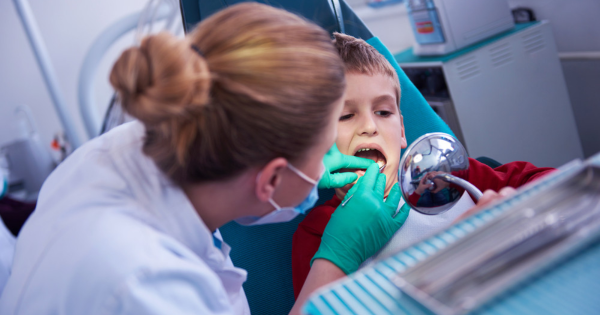5 Times You Need to Be Concerned About Your Child’s Teeth
While your child’s baby teeth may begin to fall out by the time they’re six years old, their early dental health still plays an important part in their overall health. Tooth decay is five times more common than childhood asthma, and kids with poor dental health are up to three times more likely to miss school as a result of dental pain. Regular brushing and dental visits are essential for keeping your child’s teeth happy and healthy.
But how do you know when you really ought to be concerned about your child’s teeth? Here are a few times when it’s definitely recommended to visit the dentist for preventative care between their regular check-up appointments.
1. Your Child Is Experiencing Tooth Pain
If your child tells you that they’re experiencing pain in their mouth, jaw, or around their tooth, it’s important to contact their pediatric dentists to schedule an appointment. Pain can mean your child may have inflammation, an infection, or an extra tooth coming in that’s causing pain. Your dentist will want to examine the area as quickly as possible to relieve your child’s discomfort.
2. Your Child Grinds Their Teeth
Another time it’s good to be concerned for your child’s teeth is when you notice them grinding their teeth when they sleep. Teeth grinding can cause wear to your child’s enamel, the protective layer of their teeth. It can also cause chipped, cracked, or broken teeth if left untreated. Your child’s dentist may recommend using a nighttime mouthguard for your child to help protect their teeth while they sleep and prevent grinding.
3. Your Child Is Extremely Sensitive to Hot and Cold Foods
It’s normal for your teeth to be sensitive to extreme temperatures. However, if your child experiences dental pain more than usual while they’re eating foods like ice cream or beverages like hot chocolate, it could be a sign that your child has cavities that need to be treated. Be sure to contact your pediatric dentists to make an appointment for an exam. Children who have cavities in their baby teeth are more likely to develop cavities in their adult teeth, and it’s important to make sure these cavities are properly treated.
4. Your Child’s Baby Teeth Won’t Fall Out Naturally
As we mentioned above, kids typically begin to lose their baby teeth around the age of six. The baby tooth may fall out and then be replaced by the permanent tooth, or the permanent tooth may erupt and naturally push out the baby tooth. However, sometimes your child’s permanent tooth will come in before the baby tooth is ready to come out. This can be a problem because your child’s permanent tooth uses the positioning of the baby tooth as a guideline for where to come in.
If the baby tooth doesn’t fall out to make room for the permanent tooth, the permanent tooth will begin to come in crooked. This can put pressure on the other teeth and impact your child’s bite, causing them pain and discomfort. If you notice your child’s baby tooth isn’t falling out on its own despite the permanent tooth coming in, make an appointment with your child’s pediatric dentists for an exam.
5. Your Child’s Permanent Teeth Are Loose
While it’s perfectly natural for your child’s baby teeth to become loose and fall out on their own to make way for their permanent teeth, it’s never a good sign when their permanent teeth are loose. Accidents when playing outside or when playing sports games can sometimes cause dental trauma and loosen a tooth. In other cases, your child may be experiencing advanced dental decay. Either way, it’s a good idea to make an appointment with your local dentists to figure out an action plan to keep your child’s teeth in good health.
Looking to Make a Dentist Appointment?
If you’re looking for experienced pediatric dentists in Gainesville, VA and the surrounding areas, you’ve come to the right place. Smilez Pediatric Dental Group has the professional pediatric dentists you can rely on to provide gentle, family-friendly dental care. Whether your child needs a routine cleaning, filling, or more, we’ve got you covered. Contact us today to schedule an appointment with us.



